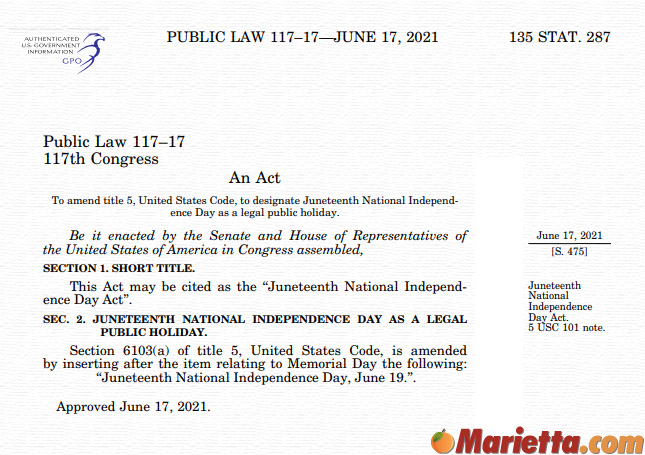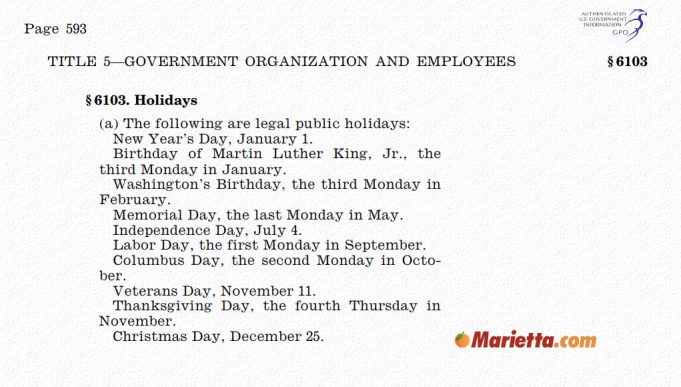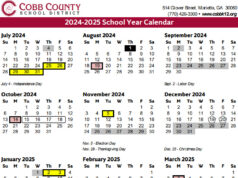Federal holidays are more than just days off from work and school; they serve as markers of significant events and individuals in American history. From honoring influential figures like Martin Luther King, Jr., to commemorating monumental events like Independence Day, each federal holiday has its own unique story to tell.
New Year’s Day takes place on January 1 each year in the Gregorian calendar, which was introduced by Pope Gregory XIII in 1582. Celebrated around the world with fireworks, parties, and various traditions to usher in a fresh start, New Year’s Day also marks the end of the bustling holiday season and is often seen as a day of reflection and resolution-setting.
Celebrated on the third Monday of January, Martin Luther King, Jr. Day honors the civil rights leader Martin Luther King, Jr. Although his actual birthday is on January 15, 1929, the holiday falls on a Monday to provide a long weekend for Americans. King is best known for his role in the advancement of civil rights using nonviolent civil disobedience and for his famous “I Have a Dream” speech delivered in 1963 during the March on Washington.
Presidents Day takes place on the third Monday in February. The holiday was established in 1885 in recognition of George Washington’s birthday on February 22, 1732. In 1968, the Uniform Monday Holiday Act passed and combined the celebration of Washington’s birthday with the birthday of Abraham Lincoln, which took place on February 12. Presidents’ Day commonly viewed as a day to celebrate all U.S. presidents, past and present.
Memorial Day is celebrated on the last Monday in May. The holiday pays tribute to those who have died while serving in the U.S. armed forces. Initially called Decoration Day, it has roots dating back to the Civil War era when people would decorate the graves of fallen soldiers. The holiday now serves as a day for remembrance, often marked by ceremonies, parades, and the decoration of military graves.
Juneteenth National Independence Day takes place on June 19 of each year. The day’s name is a blending of the words June and nineteenth, referencing June 19, 1865 – the day that Union Army Maj. Gen. Gordon Granger rode into Galveston, Texas, and told enslaved African-Americans of their emancipation. That was two years after President Lincoln issued the Emancipation Proclamation on January 1, 1863. Juneteenth is also known as Emancipation Day, and people across the country celebrate with food and festivities, much like the Fourth of July.
Independence Day takes place on July 4 of each year. Also known as the Fourth of July, the holiday commemorates the adoption of the Declaration of Independence on July 4, 1776. The Declaration of Independence declared that the thirteen original colonies were free and independent states no longer connected to the British Crown.
Labor Day takes place on the first Monday in September. The holiday celebrates the American labor movement and workers contributions to the U.S. and became a federal holiday in 1894. Labor Day weekend also symbolizes the end of summer for many Americans, and is celebrated with parties, parades and more.
Columbus Day takes place on the second Monday in October. The day commemorates Christopher Columbus’s arrival in the Americas. The actual date of his arrival at an island in the Bahamas was on October 12, 1492. Though the holiday became a federal one in April 1934, it is a subject of debate due to the impact of Columbus’s arrival on indigenous populations.
Veterans Day is observed on November 11 each year. The day honors military veterans of the U.S. Armed Forces. The day was formerly known as Armistice Day and marked the end of World War I at the 11th hour of the 11th day of the 11th month of 1918. Armistice Day was renamed Veterans Day in 1954.
Thanksgiving Day takes place on the fourth Thursday in November. It is sometimes referred to as “First Thanksgiving” in recognition of the celebration and feast by the Pilgrims (and attended by Native Americans) after their first harvest in the New World in October 1621. Thanksgiving became a federal holiday in 1863, during the American Civil War, as a time to give thanks and celebrate with a feast.
Christmas Day takes place on December 25 each year. Christmas Day is a Christian holiday commemorating the birth of Jesus Christ. It is marked by the exchange of gifts, the decoration of Christmas trees, gatherings among family and friends, and a message of peace and goodwill.
Federal holidays serve not only as a break from the routine but also as a reminder of the milestones that have shaped the nation’s history.
TITLE 5—GOVERNMENT ORGANIZATION AND EMPLOYEES
U.S. Code § 6103 – Holidays (Page 594)
(a) The following are legal public holidays:
- New Year’s Day, January 1.
- Birthday of Martin Luther King, Jr., the
third Monday in January. - Washington’s Birthday, the third Monday in
February. - Memorial Day, the last Monday in May.
- Juneteenth National Independence Day, June 19.
- Independence Day, July 4.
- Labor Day, the first Monday in September.
- Columbus Day, the second Monday in October.
- Veterans Day, November 11.
- Thanksgiving Day, the fourth Thursday in
November. - Christmas Day, December 25.
On June 17, 2021, Title 5 was amended to include Juneteenth National Independence Day as the newest federal holiday, to take place on June 19 of each year.

















